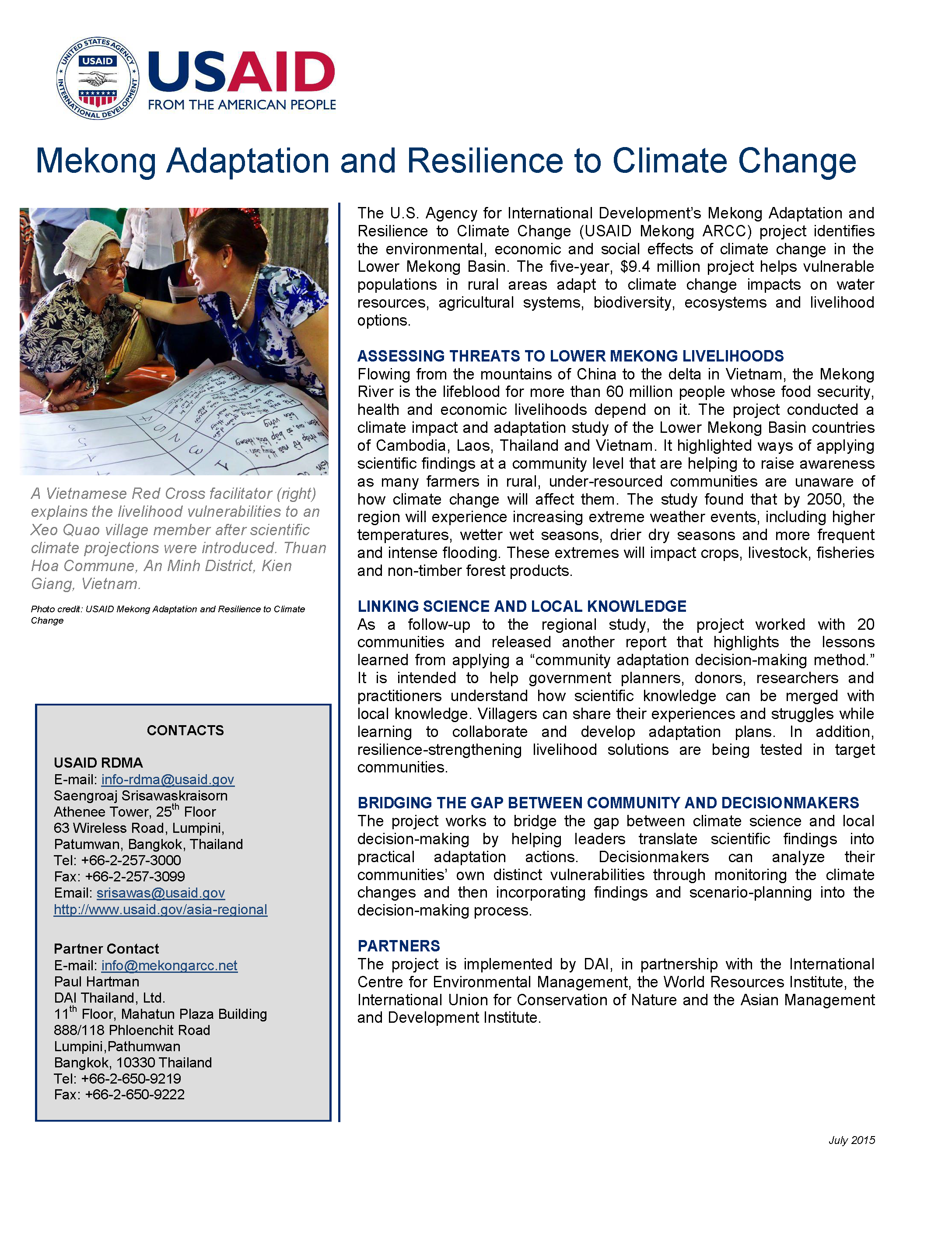The U.S. Agency for International Development’s Mekong Adaptation and Resilience to Climate Change (USAID Mekong ARCC) project identifies the environmental, economic and social effects of climate change in the Lower Mekong Basin. The five-year, $9.4 million project helps vulnerable populations in rural areas adapt to climate change impacts on water resources, agricultural systems, biodiversity, ecosystems and livelihood options.
ASSESSING THREATS TO LOWER MEKONG LIVELIHOODS
Flowing from the mountains of China to the delta in Vietnam, the Mekong River is the lifeblood for more than 60 million people whose food security, health and economic livelihoods depend on it. The project conducted a climate impact and adaptation study of the Lower Mekong Basin countries of Cambodia, Laos, Thailand and Vietnam. It highlighted ways of applying scientific findings at a community level that are helping to raise awareness as many farmers in rural, under-resourced communities are unaware of how climate change will affect them. The study found that by 2050, the region will experience increasing extreme weather events, including higher temperatures, wetter wet seasons, drier dry seasons and more frequent and intense flooding. These extremes will impact crops, livestock, fisheries and non-timber forest products.
LINKING SCIENCE AND LOCAL KNOWLEDGE
As a follow-up to the regional study, the project worked with 20 communities and released another report that highlights the lessons learned from applying a “community adaptation decision-making method.” It is intended to help government planners, donors, researchers and practitioners understand how scientific knowledge can be merged with local knowledge. Villagers can share their experiences and struggles while learning to collaborate and develop adaptation. In addition, resilience-strengthening livelihood solutions are being tested in target communities.
BRIDGING THE GAP BETWEEN COMMUNITY AND DECISIONMAKERS
The project works to bridge the gap between climate science and local decision-making by helping leaders translate scientific findings into practical adaptation actions. Decisionmakers can analyze their communities’ own distinct vulnerabilities through monitoring the climate changes and then incorporating findings and scenario-planning into the decision-making process.
PARTNERS
The project is implemented by DAI, in partnership with the International Centre for Environmental Management, the World Resources Institute, the International Union for Conservation of Nature and the Asian Management and Development Institute.








Comment
Make a general inquiry or suggest an improvement.